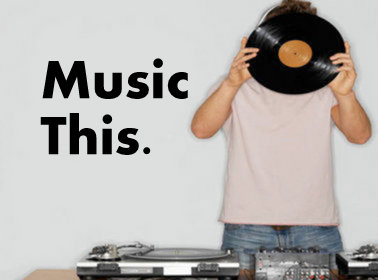Should file sharing really be considered a crime, punishable by large fines as well as jail sentences? It seems like there is much more criminal activity going on from the labels and distributors themselves. With the average cost of a CD soaring to the ridiculous price of $15.99, sometimes for only nine or ten songs, it seems that buying music may not be worth it anymore.
File sharing would strike the average music consumer as a much cheaper way to take in the things they only plan on enjoying for two weeks max. But there exists a stigma associated with file sharing, most of which is propaganda perpetuated by the record industries themselves that are losing their asses due to poor asset management and marketing. Illegally downloading music may have had a negative impact on the record industry, but in a free market, the consumer should be able to find other ways of attaining their product than strictly having to deal with a handful of well connected record labels and only a few major distributors. We have seen three perks that have come recently, most of which are direct responses to music piracy and file sharing.
The first is lower album prices.
Labels, like Universal Music Group for example, are creating new maximum prices for CD sales. Instead of the usual $15.99, the new cost structure will keep a CD’s price under $10. This direct market response is free market economics at its finest. Unlike the other record labels that sat idly watching their capital melt around them, Universal has recognized that they could create an advantage by simply lowering costs. It is still unknown which portions of the CD’s cost will be eliminated. Maybe cheaper materials. Possibly less costly marketing. Or maybe (but highly doubted) a chop from the top. Whether or not this cost scheme will work is something we will be forced to wait and see. But it remains a response for record labels to the complaint of lofty record prices.
The second benefit of file sharing is the promotion benefits.
People aren’t willing to buy a CD for 16 bucks if they aren’t sure they’ll enjoy it. Sometimes people want to hear new music, but don’t want to invest too much into it. There is a lot of shitty music out there, and buying a crappy album is like going on a bad date; the first few minutes seem interesting, but after listening to them for an hour you wish you wouldn’t have wasted the money. A lot of artists are more than happy to share their music free to the public. The more fans they find, the more tour dates they can set-up. And for musicians, live performance is where the profits are. An article from Time Online discussed a band known as Arctic Monkeys from the UK. Their rise to fame is attributed to the songs they allowed fans to download for free from their website. But now, after hitting platinum, they’ve got hired cyber guns tracking down unauthorized leaks so as not to curb record sales. File sharing may benefit up and coming artists, but for accomplished artists, it proves to be a problem.
The final benefit I have found to file sharing is bands that specifically circumnavigate the record label system and sell their music online at a reasonable price and only for self-profit.
Some bands, usually those with an already well-established fan base, find this to be the most profitable way to sell their music. This is a double-edged sword. It works to avoid the studio system, and to make sure that the artists directly receive the money they should be earning. This can also come at a very minimal cost to the consumer. The fall is that this may only be profitable for those who have already had a popular album released by the record studios. Also the production quality of the music may be of poor value when artists try to record without proper studios or experienced producers.
File sharing may be illegal, but it certainly isn’t the cause of the record industry melt down over the last several years. It may be one of the contributors along with shitty artists, shitty producers, shitty promotions, and an even shittier economy. Through file sharing we have found the benefits to the free exchange of music online. CD prices may fall in response, unknown artists get access to a greater market, and certain artists can work around the studio system.
Associated Costs of ‘Don’t Ask, Don’t Tell
15 years ago




No comments:
Post a Comment